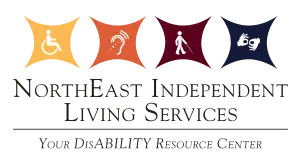
Despite the progress made in promoting disability inclusion, people with disabilities still face discrimination in various aspects of their lives.
The World Health Organization reports that over a billion people in the world live with some form of disability. Yet, they continue to face significant barriers to participating fully in society. Whether it’s in the workplace, education, or public places, discrimination against people with disabilities remains a global challenge.
In this blog post, we’ll discuss some practical tips and resources for dealing with discrimination as a person with a disability.
Know your rights
The first step to combating disability discrimination is knowing your rights as a person with a disability.
It’s essential to familiarize yourself with the laws that protect you against discrimination, such as the Americans with Disabilities Act (ADA) and Section 504 and 508 of the Rehabilitation Act. These laws prohibit discrimination against people with disabilities, ensure equal access to goods and services, and mandate reasonable accommodations in the workplace and education.
Understanding your rights arms you with the knowledge you need to protect yourself against discrimination and advocate for your needs.
Speak up
Discrimination thrives on silence, so speaking up is a powerful tool in combating it. If you experience discrimination or witness it happening to someone else, don’t be afraid to speak up.
Start with the person or entity responsible for the discrimination, explain the situation calmly and assertively, and clearly state what you need to remediate the situation. If you don’t get a satisfactory response, escalate the issue through the appropriate channels, such as filing a complaint with your employer or lodging a complaint with the relevant government agency. With persistence, you can help bring about change and protect your rights.
It’s important to remember, too, to never place yourself in a position of danger. If you or someone you know or see is being discriminated against, evaluate the situation and surroundings first. Call the proper authorities if the situation becomes dangerous or uncomfortable.
Access disability-specific resources
A range of disability resources exists to help you deal with discrimination.
Disability advocacy groups, such as the National Disability Rights Network or Disability Rights Education & Defense Fund (DREDF), provide information, support, and advocacy services to people with disabilities.
Disabled People’s Organizations (DPOs) are other crucial resources that can provide a platform for collective action on disability issues. You can also seek assistance from state or local disability services offices that offer services such as job placement, training, and assistive technology.
NorthEast Independent Living Services (NEILS) seeks to foster and promote acceptance and diversity. Serving Northeast Missouri, we provide services and resources to our community and persons with disabilities to help them live as independently as possible. Whether you’re looking for self-advocacy help, Independent Living Skills Training, disability awareness programs, peer support, home care services, or a variety of other programs and resources, we are here to help.
Educate others
It’s important to recognize that many people may not be aware of disability discrimination or how it affects people. Educating others about your experiences and how they can help combat discrimination can go a long way in increasing awareness and changing attitudes towards disability.
Advocacy groups and disabled people’s organizations, like NEILS, are always on the lookout for advocates who can help raise public awareness on disability discrimination issues. You can also take advantage of social media and other online platforms to share information and stories about disability inclusion.
Document everything
Whenever you experience discrimination, keep a detailed record of what happened. Write down the date, time, place, and people involved. Record what was said, what actions were taken, and how it made you feel. Having a record of the incident can help you to build a case if you decide to pursue legal action. Documentation can also help to remind you of your experience and help you to process your emotions.
Take care of your well-being
Dealing with discrimination can be emotionally draining, so it’s vital to prioritize your well-being. It’s okay to take a break when you’re feeling overwhelmed or seek support from family, friends or professionals. Self-care practices such as exercise, meditation, or hobbies can help alleviate stress and promote a sense of well-being. If you’re struggling with negative emotions like depression or anxiety, it’s essential to seek help from a mental health professional.
Conclusion
Dealing with discrimination can be a challenging journey, but with the right tools, you can protect your rights and promote disability inclusion. We hope the above tips and resources will help you navigate your journey. Following these tips can also help create a more inclusive society where other people with disabilities can thrive.
If you are located in Hannibal, MO, or Northeast Missouri and looking for disability resources, please reach out to us. We strongly believe that individuals with disabilities should have access to an abundant amount of resources and help at home within the communities in which they live.
